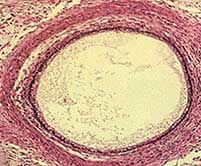
Dividing, unfertilised eggs could offer new therapeutic option
US researchers have cloned stem cells from the unfertilized eggs of primates – our closest animal relatives. The achievement suggests it may be possible to grow cells that can give rise to any tissue in the human body without cloning and destroying human embryos.
Some researchers in the field doubt whether the technique will work in humans. And opponents of therapeutic cloning do not believe the new cells solve a
Over a third of women attending general practices have experienced physical violence, but doctors and nurses rarely ask about it. Researchers in this week’s BMJ ask:
Should women be screened for domestic violence when they visit their general practitioner?
Is there a high risk group of women for whom screening might be more appropriate?
Is screening acceptable to women?
A sample of women visiting 13 general practices in Hackney, east London were surveyed about different aspects o
The use of halogenated flame retardants in plastics is steadily declining because they are volatile, pose an environmental risk and are difficult to recycle. Microcapsules, fibers and melamine resin foams represent some of the chief alternatives.
As successfully as the endless variety of plastics have established themselves on the market, these multifaceted materials show another face when it comes to fire. They melt and feed the flames like the petroleum from which they were ultimately pro

Researchers grapple with wilt-causing bacteria
It’s the Mike Tyson of plant bacteria,” says Gerry Saddler, of the Scottish Agricultural Science Agency, Edinburgh.
Saddler is referring to Ralstonia solanacearum , the cause of southern bacterial wilt possibly the most important plant disease in the world. French researchers have now sequenced the bacteria’s genome – information that should lead to a better understanding of plant disease, and perhaps new ways to fight it
Scientists from Newcastle University are using llama droppings to help combat environmental problems caused by polluted water seeping from abandoned silver and tin mines in the Bolivian Andes.
The project is being spearheaded by Paul Younger, Professor of Hydrogeochemical Engineering at Newcastle University. It has been adapted from a community-based natural regeneration technique which uses waste materials to treat polluted mine waters. Professor Younger pioneered the technique, along with
Every citizen dreams of spending less time in traffic jams, away from polluted air, while continuing to enjoy the same level of mobility and quality of life as today. On Thursday, 31 January, Commissioner for Research Philippe Busquin will participate in the conference “Towards Sustainable Urban Mobility” jointly organised by the European Commission and the European Parliament. The objective of this Conference is to present a network of ten projects in the field of land use and transport funded unde